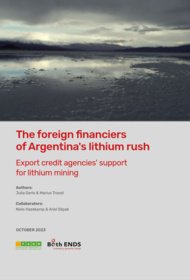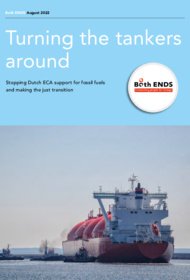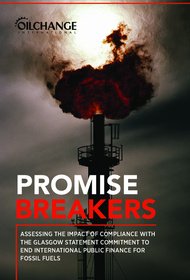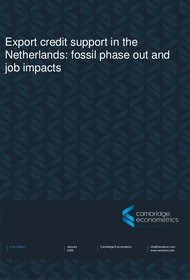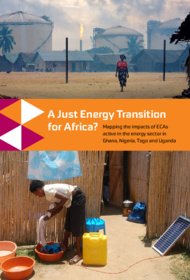'We can not have a transition when we do not talk about consumption patterns'
The parliamentary elections in the Netherlands are over, and the dust has somewhat settled. No matter what government emerges from the process, one thing is clear: in the Netherlands the main focus is on the Netherlands. Foreign affairs were hardly mentioned during the elections and the same applies to the process of forming a new coalition. More alarmingly, some of the winners in the elections want to cut themselves off even further from the world around us.
But the Netherlands is not an island: we are closely interconnected with the world beyond our borders. Our economy depends on international trade, and the energy that comes out of our wall sockets and the food on our plates often come from abroad. Moreover, decisions that we make can have far-reaching consequences in other countries around the world. The Netherlands’ international footprint is disproportionately large.
Both ENDS is looking at how Dutch foreign policy can be influenced in the coming years to reduce our footprint abroad and to work in the interests of people and planet. We will be doing that in four double interviews, each with an in-house expert and someone from outside the organization. The interviews will also be posted on ViceVersa online.
Pia Marchegiani is director of Fundación Ambiente y Recursos Naturales, an Argentina based organization dedicated to environmental and sustainability issues. Marius Troost Senior Advisor Lobbying and advocacy and Export credit insurance.
The Netherlands is a small country, but big in terms of trade and investments abroad. What could the Netherlands do to prevent damage to human rights and the environment?’
Troost: ‘The past years we have been working on stopping public support for fossil fuels. However the shift we now observe, from fossil fuels to resources needed for the energy transition, also has negative impacts for local communities and natural resources. As BothENDS we try to enhance public awareness to the implications of so-called ‘green transitions’.
Marchegiani: ‘For us it is not perse the Netherlands who is culprit, but more the EU in general. Europe has woken up to the importance of energy transition. The continent seems to realise that it is running behind China. The last few years a lot of effort has been done to become more self-sufficient in terms of: where to get the minerals. Geopolitical factors increasingly play a role. Many of the geo-political ideas are very much backed-up with regulations such as the recent corporate due-diligence legislation of the European Union and the Deforestation-free value chain law. Obviously when you look in practice there is a lot of contradiction. Governments promise to reduce fossil fuels use, but in practice they still support investments. In the practice energy transition is becoming an “energy expansion”.
Troost: ‘There is indeed an increasing body of laws and regulations to control and steer the Dutch/European impact abroad. However, in practice Dutch companies are still involved in human rights violations and environmental damage.’
Why is the energy transition as it unfolding now, problematic?
Troost: ‘We need to work out different business models. We all know that the fossil fuel era is coming to an end. We have to be careful not to repeat the same mistakes we made in the trade and investment system of the past. Currently we are cutting down the fossil fuels, but we use the same system to extract the resources from other places, so that we can make the energy transition. It is still the same unfair system. We’ve got used to a system were energy is cheap and abundant, whereas actually this cheap energy is harmful for people and planet.’
Marchegiani: ‘we see a lot of projects around Lithium. Argentinia,, Chile and Bolivia have 53% of worlds Lithium. Indigenous communities are not respected, their rights are violated. Lithium is mined in areas where water is very scarce, where there are salt flats. As a result over exploitation is going to shift carbon sinks to carbon releases. Argentina is the most open country in terms of economy. It has a huge debt to the IMF, for the government it is difficult to say no to investors. When you look at it from a justice point: vulnerable communities lives are at stake, because of a global northern consumption that is only increasing.’
What does a fair transition require?
Troost: ‘What it comes down to that we also have to revisit consumption patterns here in the Netherlands and the Global North. It starts with degrowth: you can not have a transition when you do not talk about consumption patterns. Material consumption always translates into energy consumption. Degrowth is becoming a polluted concept, but it is definitely part of the same debate.’
Marchegiani: a lot of subsidies are going to multinational companies that extract fossil fuels. Whereas in Argentina a lot of people do not have access to energy. The subsidies should be directed to people that need support, and not to big multinationals. We need to change the production and consumption system.
What message do you give to the new Dutch Government?
Marchegiani: ‘Be more conscious about the crisis we in Latin America are living. ‘Are more happy with more stuff? I don’t believe people want to be involved in human-rights violations. Be more conscious about the harm of consumption. Even if it is less comfortable, we all need to re-shape our lives.’
Troost: ‘The material costs of our consumption is been exported abroad. That is not the price paid at the shop. There is a lot of hidden costs. You don’t have to give a negative message, focus on the positive: everyone wants a more green, more sustainable cities and more free time. ‘
For more information
Read more about this subject
-
News / 13 November 2023
Recommendations to the foreign financiers of Argentina's lithium rush
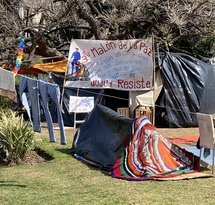
To realise the energy transition, large quantities of minerals and metals such as lithium, cobalt and rare earth metals are needed. These raw materials are mainly extracted in countries in the global South, and unfortunately this is almost always accompanied by human rights violations and environmental destruction. Today – also in light of EU Raw Materials Week that is happening this week – Argentinian organisation FARN and Both ENDS publish a joint report on the extraction of lithium in Argentina.
-
Publication / 13 November 2023
-
Publication / 29 August 2022
-
Publication / 15 March 2023
-
Press release / 19 May 2022
122 CSOs warn signatory countries they have only six months left to meet COP26 commitment to end international public finance for all fossil fuels
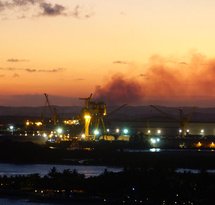
Today, 122 civil society groups are releasing letters to eleven government signatories to the Glasgow Statement on International Public Support for the Clean Energy Transition, laying out the actions they must take as soon as possible to meet their commitment. In this joint statement at COP26, 35 countries and 5 public finance institutions committed to end their international public finance for 'unabated' fossil fuels by the end of 2022, and instead prioritise their "support fully towards the clean energy transition."
-
Press release / 3 November 2022
The Netherlands breaks major climate promise to end public financing for international fossil fuel projects
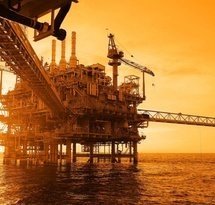
Today, a week before the international climate summit in Egypt, the Dutch Government has broken a major climate promise it made last year to end public financing for international fossil fuel projects. International and Dutch NGOs argue that the new policy published by the Dutch Government on restricting finance for fossil fuels has such significant loopholes, that it essentially means The Netherlands has reneged on its promise.
-
News / 4 April 2024
EU ECA fossil fuel phase-out tracker reveals EU Member States’ lagging commitment to Paris Agreement goals in export credit policies
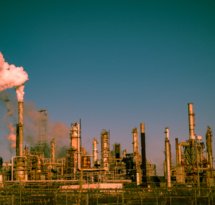
Our new report titled EU ECA fossil fuel phase-out tracker by Both ENDS, Counter Balance and Oil Change International sheds light on the concerning lack of harmony between EU Member States' export credit climate policies.
The report was updated on April 17th, following new responses by Member States on their respective policies.
-
News / 20 February 2023
Almost 60 organisations send a letter about fossil export support to Dutch Parliament
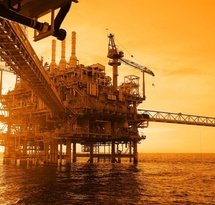
Today, a letter, undersigned by almost 60 organisations from countries that face the consequences of fossil fuel projects or stand in solidarity, has been sent to the Dutch Members of Parliament. This Thursday, a debate about the export credit facility and the policies around it, will take place in the Dutch Parliament. The coalition calls upon Dutch politicians and policy makers to stand up against any form of export support for fossil fuel projects that are to be executed by Dutch companies abroad, expecially in the global South.
-
Letter / 15 December 2022
No export credit support for Santos FPSO
In October this year, the Dutch government published a policy to implement the COP26 statement in which it promised to stop public finance for fossil fuel projects abroad by the end of 2022 . In spite of this pledge, the Netherlands is considering granting an export credit insurance to a floating production storage and offloading (FPSO) vessel that will be used to produce oil and fossil gas in Brazil for a period of 30 years.
-
Letter / 30 September 2022
CSO letter to the Netherlands on urgently implementing COP26 Commitment
Last year at COP26, the Netherlands, alongside 38 other governments and institutions, committed to the Glasgow Statement on International Public Support for the Clean Energy Transition. By signing this statement, the Netherlands has committed to ending new direct public support for the international unabated fossil fuel energy sector by the end of 2022- a commitment it has yet to deliver.
With this letter, 20 civil society organisations call on the Netherlands to announce its implementation policies for the Glasgow Statement ahead of the Export Finance for Future (E3F) Summit on the 3 November. The E3F Summit is a critical opportunity for the Netherlands to uphold the commitments made in Glasgow last year, alongside all other E3F members.
The recent E3F transparency report highlighted that Netherlands insured 6x more fossil fuel transactions than renewables from 2015-2020, with 3 billion EUR in fossil fuel transactions compared to only 0.5 billion EUR in renewables. This demonstrates that a fossil-fuel exclusion policy for Dutch export support is urgent, and essential, to align the Netherlands with its Glasgow commitment and the Paris Agreement.
-
Press release / 29 August 2022
Billions of euros a year in support for fossil exports underscores importance of Glasgow Declaration
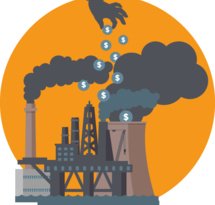
Amsterdam, 29 August 2022 - A recent study by Both ENDS shows that, in the past decade, the Dutch government has provided on average a billion euros a year in insurance for fossil energy projects. At the end of last year, together with 33 other countries, the Netherlands agreed to stop providing this support by the end of 2022. Both ENDS calls on the government to formulate a resolute policy that leaves no room for exemptions that contribute to global warming by more than 1.5 degrees.
-
News / 19 May 2022
Response to government’s letter to parliament on implementation of the Glasgow Declaration
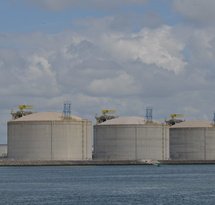
Both ENDS and 95 other organisations* today sent a letter to State Secretary for Finance Marnix van Rij and Minister for Foreign Trade and Development Cooperation Liesje Schreinemacher calling on them to implement the Glasgow Declaration in full. In this agreement, which the Netherlands and 33 other countries signed at the Glasgow climate conference, the signatory countries pledge to stop all public funding for fossil projects by the end of 2022.
-
Publication / 17 February 2022
-
Publication / 11 November 2020
-
Press release / 11 October 2021
Governments worsen climate crisis with USD billions in export finance
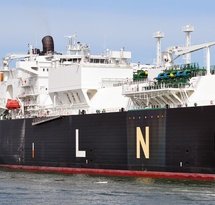
New website shines a light on the extent of export credit agencies' support for fossil fuels
Each year governments provide tens of billions of dollars in financial support to fossil fuel projects via export credit agencies (ECAs). Today, 18 civil society groups from 14 countries are launching a new website to shine a spotlight on how ECAs are undermining global climate goals. In advance of the November UN climate conference, the organisations are calling on governments around the world to end public financial support for coal, oil and gas projects, including support from ECAs. Ending this support and redirecting financial resources to sustainable alternatives is essential for a just energy transition.
-
News / 10 November 2020
FMO takes a step towards divesting from fossil fuels
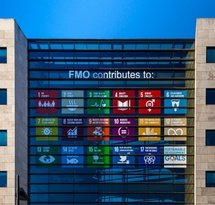
The Dutch development bank FMO has published a statement about fossil fuels to take steps in climate action. Both ENDS and partners are pleased that FMO is finally taking a stand regarding fossil fuels, but in our opinion it could be more ambitious. In order to really contribute to sustainability and equality, it is essential that development banks stop investing in harmful fossil projects.
-
Letter / 20 February 2023
Letter of international CSO's to Dutch Parliament: close gaps in Dutch policy on limiting public finance to fossil fuels
In October 2022, the Dutch government published a policy to implement the COP26 statement in which it promised to stop public finance for fossil fuel projects abroad by the end of 2022 . The proposed policy, unfortunately, has quite some 'loopholes' that make it possible for the Dutch government to keep supporting large fossil projects abroad for at least another year. These projects often run for years and will have a negative impact on the countries where they take place for decades to come.
-
Letter / 4 May 2023
Letter from NGOs to Dutch export credit agency: CSR policy must be strengthened
The Dutch government, through its export credit agency Atradius DSB (ADSB), provides export support to companies that undertake activities abroad. The state wants projects it insures to have no negative consequences for people and the environment and therefore sets requirements for corporate social responsibility (CSR). A consultation on CSR policy ran until the end of April, to which a coalition of thirteen social organisations from the Netherlands and abroad, including Both ENDS and Milieudefensie (Friends of the Earth the Netherlands), responded.
-
Letter / 28 February 2023
175 CSOs call on world leaders to end OECD export finance for oil and gas
This joint position launched by 175 civil society organisations from 45 countries calls on world leaders to end OECD export finance for oil and gas, and explains how it can be done.
-
News / 21 December 2023
The Netherlands is certainly not more Catholic than the Pope
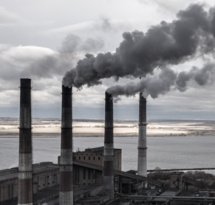
The Netherlands is well on its way with the energy transition at home, but our country continues to encourage Dutch investments in fossil projects elsewhere. This is obviously not in line with the climate goals and, moreover, these kinds of projects cause major problems in the countries where they take place. What can a new cabinet do to reduce the Dutch footprint abroad? Ellen Mangnus discussed this with several experts: today part 2.





